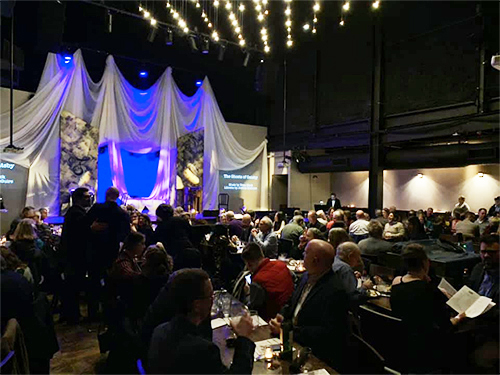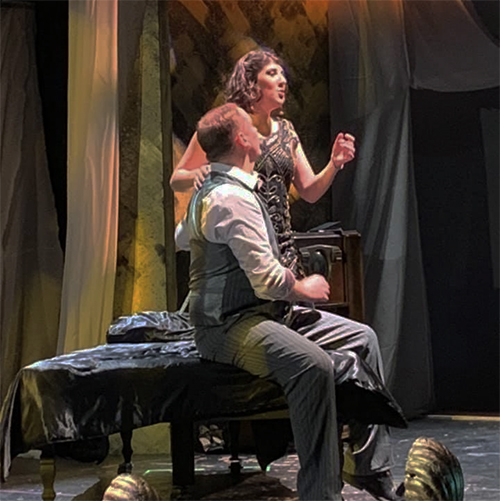by Daniel Hathaway

The action takes place in a villa on the French Riviera in 1924, where F. Scott (tenor Ethan E. Burck) is at work on The Great Gatsby, and Zelda (soprano Mary Grace Corrigan), who is having an affair, is bored and demanding. Alcohol induces both a stupor and a fight. Zelda is visited by visions of her younger self (1918 Zelda, soprano Anissa Clay) and what she will become (1948 Zelda, soprano Sarah Antell). Scott ends up striking her, and the scenario turns into Zelda’s dream as she lies in bed in an asylum in Asheville (she was diagnosed as schizophrenic in the ‘30s) about to perish in a fire.

A small orchestra of string quintet, clarinet, percussion, vibraphone, and piano conducted by Dean Buck introduced the opera with “The Fitzgerald Songbook,” a mini-review of 1920s-style songs sung by the five-member cast. Otherwise, Mack’s score only occasionally hints at music of the period. Most of the score is stylistically abstract.
Singing and acting by the mostly undergraduate cast (Burck has gone on from BW to grad studies at Curtis) was strong and confident. Side projections of the libretto were welcome, both due to Mack’s disjunct text setting, which sometimes obscured the meaning of a sentence, and the cast’s diction, which was not quite as reliable as their singing.
The ambiance of Music Box Supper Club nicely suited the subject of Ghosts. Here’s to the quietly effective service of the venue’s staff, who took orders, delivered food, and got checks out without detracting from what was happening onstage.
That included the finale of the opera. If the ending seemed implausible — the 1948 Zelda going up in flames thanks to lighting effects — so did the lives of two iconic figures of the Roaring Twenties. The stuff of opera indeed.
Published on ClevelandClassical.com January 14, 2020.
Click here for a printable copy of this article


